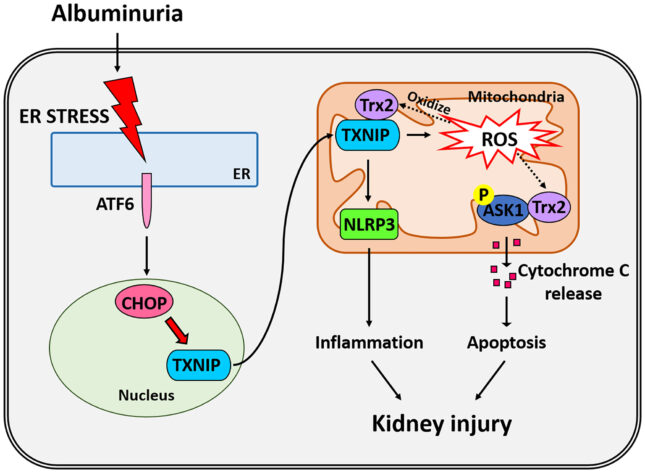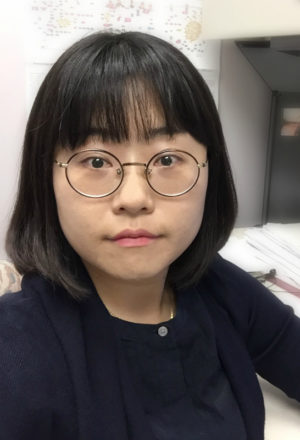
Albuminuria is the hallmark of nephrotic syndrome (NS), a leading cause of chronic kidney disease that affects 500 million people worldwide, but the molecular mechanism underlying albuminuria-induced kidney injury remains poorly defined.

A recent study by researchers from Washington University School of Medicine have provided insight into a possible novel drug target to treat proteinuric kidney disease.
Using a genetic model of nephrotic syndrome and an acquired model of focal segmental glomerulosclerosis, Sun-Ji Park, PhD, in her second first-author PNAS paper resulting from her post-doctoral studies in the Maggie Chen Lab, WashU Nephrology, identified CHOP (C/EBP homologous protein)-TXNIP (thioredoxin-interacting protein) as critical molecular linkers between albuminuria-induced ER dysfunction and mitochondria dyshomeostasis.
The research group showed that TXNIP relocates from the nucleus to mitochondria when CHOP is induced by albuminuria. Blocking CHOP-dependent TXNIP shuttling to the mitochondria attenuates albuminura and mitigates kidney injury in NS. Dr. Chen has also collaborated with Dr. Sharma to utilize his newly invented PET/CT molecular imaging probe to detect kidney reactive oxygen species in live animals for the first time.
The article was highlighted in the August 31, 2022, ASN in the Loop daily news briefing.
Dr. Sun-Ji Park is currently working at the New Drug Development Center in South Korea. Read about her first PNAS article (2019) here. Lab Supervisor, Yeawon Kim, and Dr. Chuang Li, a postdoc in the lab, also made significant contributions to the project.

Read the current article, published August 22, 2022, in PNAS here: Authors: Sun-Ji Park, Yeawon Kim, Chuang Li, Junwoo Suh, Jothilingam Sivapackiam, Tassia M Goncalves, George Jarad, Guoyan Zhao, Fumihiko Urano, Vijay Sharma, Ying Maggie Chen.
Visit the Maggie Chen Lab to learn about Dr. Chen’s exciting research.